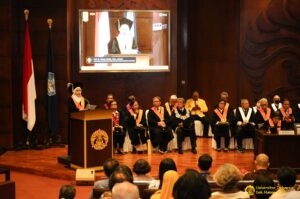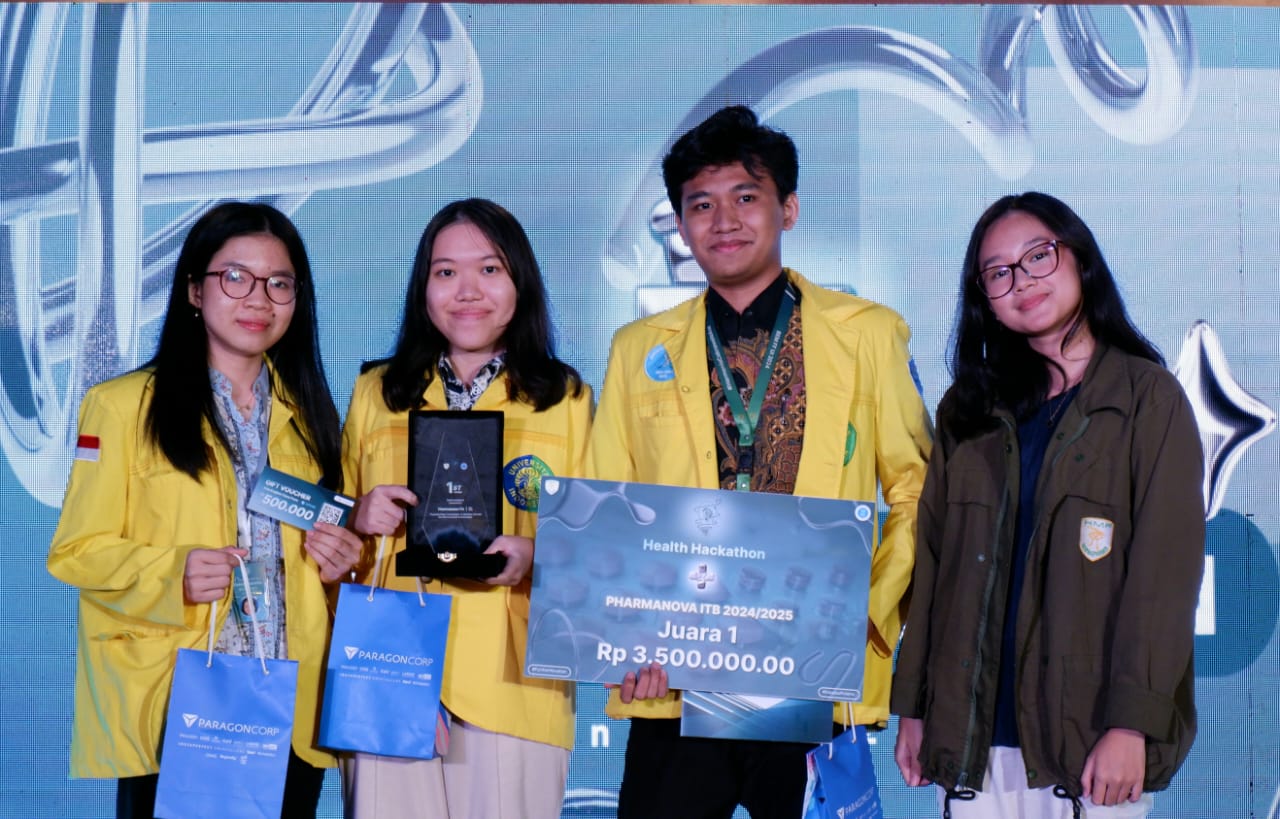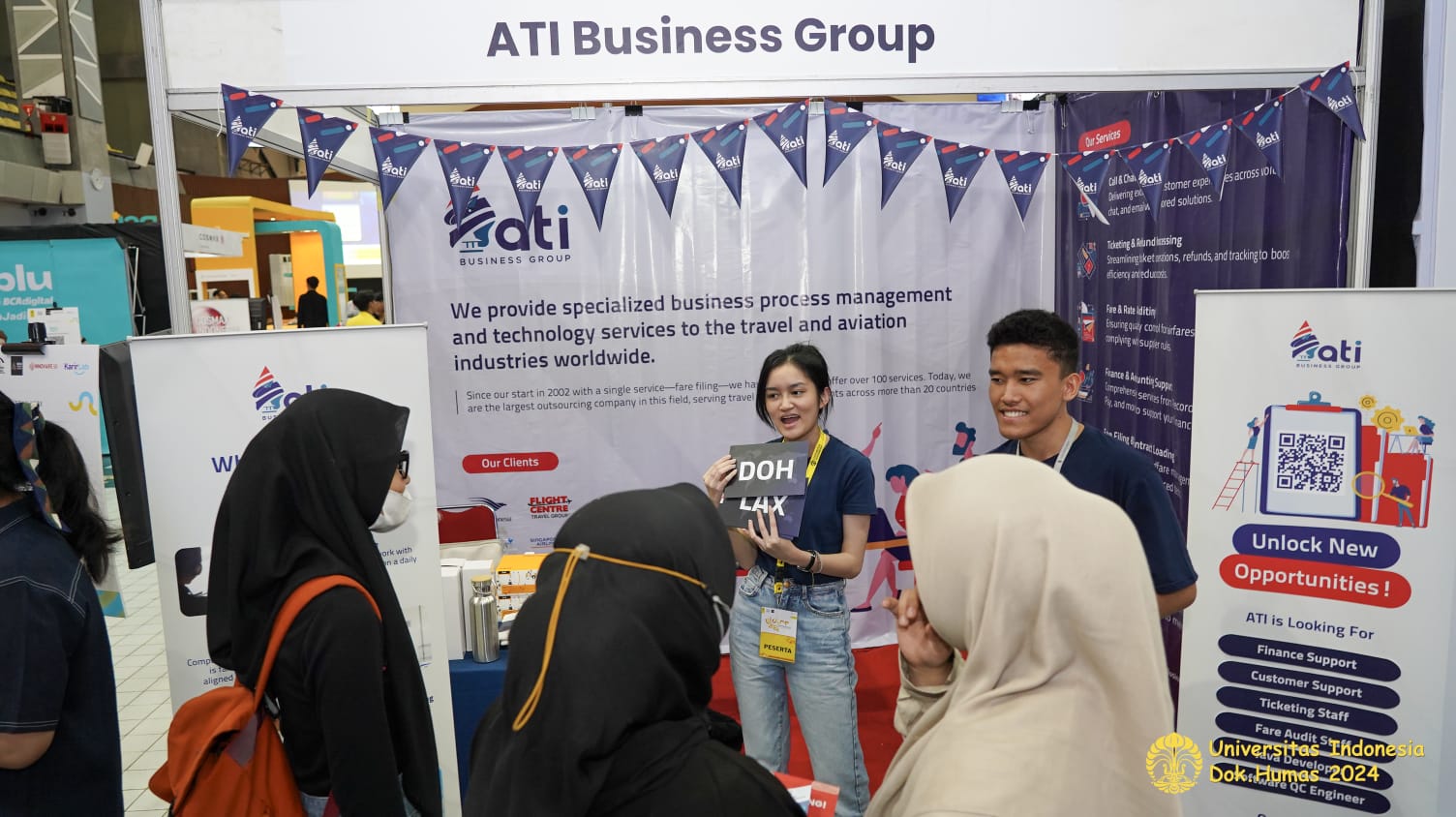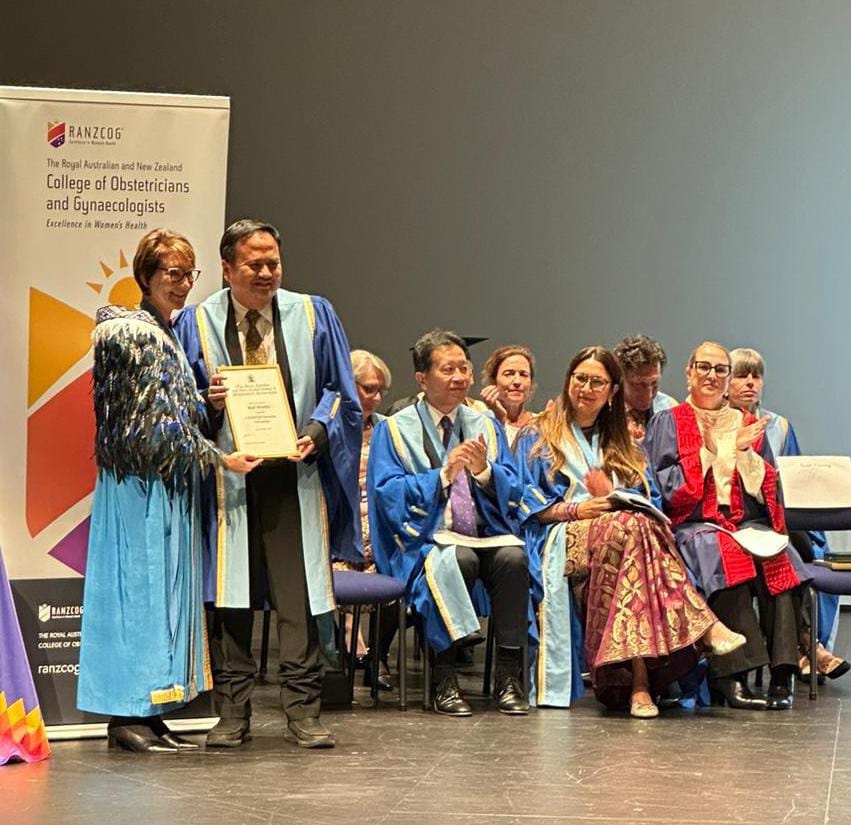As many as 60-70% of disaster victims are women and children based on BNPB data (2019), and the group of women who died during a disaster was 14 times greater than adult men. These conditions demonstrate gender inequality and pose a threat to women’s livelihoods, health and safety. The important role of women and marginalized groups is very necessary as actors and communicators in mitigating and adapting to climate change.

This was conveyed by Prof. Dr. Donna Asteria, S.Sos., M.Hum., in her inauguration speech entitled “The Urgency of Environmental Communication with a Gender Perspective for Mitigating Change” at the Convention Center, UI Depok Campus, on Wednesday (6/12). In a ceremony led by UI Rector Prof. Ari Kuncoro, S.E., M.A., Ph.D., Prof. Donna was inaugurated as a professor in the field of Communication Sciences, Faculty of Social and Political Sciences (FISIP) UI.
Furthermore, Prof. Donna said that access for women and marginalized groups to participate in decision making would contribute to the development and implementation of more efficient and sustainable climate resilience policies. Apart from that, according to her, to deal with this situation, environmental communication is an important component in the transformation towards environmental sustainability, because the process involves deep innovation, both in social practice, structure, and technology in conveying information about the environment. Transdisciplinary environmental communication will support climate change mitigation through promoting environmental awareness and concern, especially the risks of climate change.
She also emphasized that dealing with climate change mitigation requires human awareness, knowledge and morals, especially mapping women’s experiences. To deliver environmental communication messages that are more accurate and appropriate to the community, it is necessary to highlight the local values and knowledge of the community supported by the integrated use of digital media technology. The involvement and collaboration of all stakeholders is very important in unifying the discourse on environmental awareness and managing climate change risks at all levels in society.
Prof. Donna believes that in the current situation of digital technology disruption, it is important to pay attention to the challenges of information management in the environmental communication process. Efforts to prevent the spread of disinformation and misinformation on the impact of climate change (both information about natural disasters and health problems that occur) require collaboration in anticipating its spread. The role of local community media supported by other stakeholders is very necessary to prevent the spread of disinformation and misinformation, in addition to community media also voicing the experiences of local women in facing the impacts of climate change.
Interdisciplinary environmental communication studies, with a spirit of transformation, are very necessary for empowering society, especially women, in climate change mitigation actions. Therefore, more research is needed, not only environmental communication research in the context of content production by mass media and online media, exploring the actions and contributions of organizations/companies through corporate social responsibility (CSR) activities to overcome environmental problems and the impact of climate change is also needed. This research also needs to be supported by the use of digital data through research that uses digital research applications. The results of this research will be used as an alternative environmental communication model with a gender perspective for evaluating regulations and making transformational policies.
Prof. Donna actively produces scientific publications in national and international journals. Some of them are entitled Forest Conservation by The Indigenous Baduy Community in The Form of Customary Law (2022); The Role of Women in Managing Waste Banks and Supporting Waste Management in Local Communities (2022); Environmental Preservation and Sustainability of Natural Resources Through Traditional Customary Value (Case Study Kampung Naga, West Java) (2021); and Adat Law and Culture: The Local Authority Elements of Baduy Tribe on Environment Preservation (2021).
She completed her undergraduate to doctoral education at Universitas Indonesia. In 2000, she successfully completed a Bachelor of Communication Science at FISIP. Then, she continued her master’s education in Women’s Studies, Postgraduate Program and graduated in 2023. Furthermore, Prof. Donna continued her education at the Doctoral Degree in Environmental Science, Postgraduate Program.



